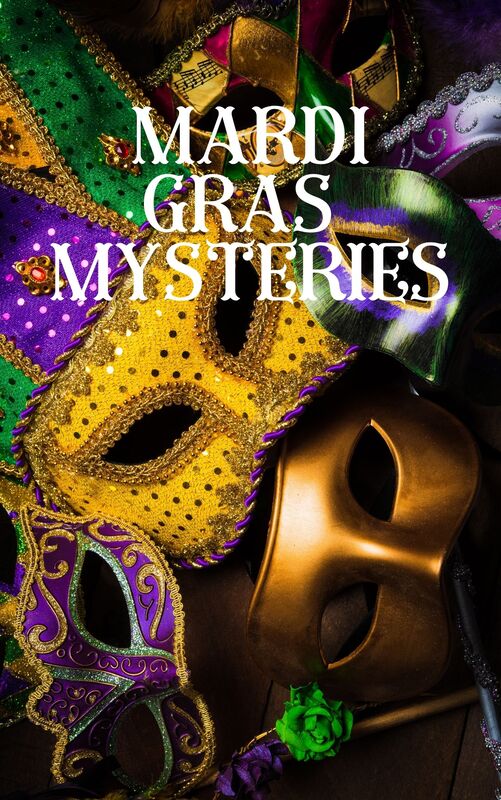 Get your Carnival on! Get your Carnival on! Nathan Pettigrew, author of "The Steel Pelican", was born and raised an hour south of New Orleans and lives in the Tampa area with his loving wife after sharing a close friendship as residents of Massachusetts. Recent stories have appeared in “The Year” Anthology from Crack the Spine, Switchblade, issue 12, and at Bristol Noir. Other stories have appeared in Stoneboat, and the Nasty: Fetish Fights Back anthology from Anna Yeatts of Flash Fiction Online, which was spotlighted in a 2017 Rolling Stone article. His story “The Queen of the South Side” was named Honorable Mention in the Genre Short Story category for the 88th Annual Writer’s Digest Writing Competition, while his story “Dog Killer” was named among the top four finalists of the Writer’s Digest 8th Annual Popular Fiction Awards for the Crime category. Other genre stories have appeared in the award-winning pages of Thuglit, and at DarkMedia.com. Visit Nathan @NathanBorn2010. What is your favorite part of Mardi Gras? That’s a difficult question to answer since there’s so much going on. It’s basically a month of parades, great food, killer cookouts, drinking, getting together with friends and family but also with strangers to celebrate the joy of just having a good time. If I had to narrow it down, I would say the friends and family part. For example, I have cousins that live in Lafayette, which is 2 hours away from Terrebonne Parish where I grew up, and so they’ll drive down to go to the parades with us. It’s that serious where family from all over the state will meet up for at least one parade. In fact, I have cousins who live in Alexandria which is 4 hours away from Terrebonne, and even they’ll show up. It's more serious than Christmas down there, and it can either be a pleasant reunion or some good ol’ family drama. Lol. Same with friends. There are a handful of different high schools in Terrebonne, and you get to meet up with friends from other schools that you might’ve gone to grade school with. This is all extremely fun so that would have to be my favorite part. Now people from all over the world come to New Orleans for Mardi Gras, but Terrebonne is an hour south near the Gulf. Do you find any similarities between Mardi Gras and Tampa Bay's Gasparilla celebration? Yes and no. The obvious similarity is the community coming together to celebrate a good time, but I see Gasparilla as a different thing—the pirate theme being the main difference, and the “krewe” element being the only direct link. I must confess that I don’t know the history of Gasparilla, however. Also, and this might be surprising, but I see Gasparila as much more unique than Mardi Gras. Gasparilla is exclusive to the Tampa Bay area from what I understand, while Mardi Gras goes on in within a few different communities around South Louisiana. Mardi Gras is also more commercial, and by that I mean the tourist element and those sleazy videos they used to sell on infomercials that suddenly turned Mardi Gras into a flashing fest. You were an editor of the ezine Solarcide the last time I interviewed you. Are you involved in something similar these days? Sadly no. Solarcide was Martin Garrity's baby—he was a short story author from the UK who asked me to be a co-editor with him. In exchange, he let me promote my short stories on the site under my own section or author page. So, I was co-editor and featured author of Solarcide. I also conducted interviews with authors and found artwork to feature while Martin maintained the site, edited submissions, and put 3 short story anthologies together. Somewhere along the way, Martin lost his passion for writing. I tried to keep Solarcide going by myself for a couple of years, but could never secure the rights and the domain expired. We didn’t have a falling out or anything like that—I still consider Martin a friend. He simply lost his passion and walked away, but fully intended on giving me the ownership. For one reason or another, that never transpired. It was a situation like, “I keep meaning to transfer the ownership to you.” And I would respond, “Great! Thanks so much! Looking forward to it.” Next thing I knew, the domain expired. All that said, Solarcide was one of the greatest joys of my life, and I would gladly be part of something like that again if someone asked. I cannot thank Martin Garrity enough for the Solarcide experience. I’m glad you asked this, by the way. What gave you the idea for "The Steel Pelican?" I watch the Joe Rogan Experience sometimes and he talks a lot about DMT. He had Mike Tyson on as a guest, and Mike Tyson revealed that he had taken DMT and explained how it completely transformed him into a kind, loving person who just wants to help others and see humanity succeed. I was blown away by his enthusiasm and thought, “Damn. What if a serial killer took DMT?” And that was in addition to a previous question I had, “What if a serial killer had mistakenly chosen a distant cousin as his next victim?” That brought a family element to the story, which is important during Mardi Gras. So, it started with questions, but I didn’t have any motivation to answer those questions until I saw the announcement for Mardi Gras Mysteries. There wasn’t a chance that I would pass on the possibility to appear in Mardi Gras Mysteries, so I got to work, just writing about a serial killer who takes DMT and the results. The rest of the story came to me while writing—Thank God. I started seeing the serial killer as a lawman, but the setting was easy because most stories I write take place in the community where I was born and raised. And then it came full circle. People who take DMT claim to encounter entities, aliens, and jesters. Perfect! The serial killer encounters Mardi Gras jesters when taking DMT. What is your current project, and can you share a little of it with us? Current projects are submissions. I’m working on a few stories that I hope to have finished before certain deadlines, and I’m waiting to hear back on 4 stories that I feel very good about. These stories include crime fiction, and I guess what folks call “literary fiction” (not a fan of the term). I also just finished my second non-fiction piece. My goal for now is to see a short story collection published. My favorite books to read are short story collections, examples being Knockemstiff by Donald Ray Pollock, Jesus’ Son by Denis Johnson, And Her Smile Will Untether the Universe by Gwendolyn Kiste, Crimes in Southern Indiana by Frank Bill, and Drown by Junot Diaz. Honestly, I’m just glad to be writing and seeing stories published again. I took a few years off from writing to address some personal matters and wasn’t sure if I would return but 2020 was very good to me writing-wise, and I’m confident that I’ll reach my goal in 2022 or 2023. I’m yet to write a story that fails to find a home, and I’m very proud of that. But I must point out it’s best to submit to publications that you read and enjoy vs. just trying to rush the kids off to college. What do you like to do when you're not writing? When I’m not writing, I enjoy spending time with my wife. She’s an extremely funny person, far more intelligent than me and was my best friend for 20 years before we finally fell love or at least admitted what it was between us. We enjoy going to Honeymoon Island on Sundays (a beach area near our home) unless it’s football season. We are football fanatics. We used to live in Massachusetts, so we were Patriots fans, and my wife likes to tell herself that Tom Brady moved down to play for Tampa Bay because he missed her. LOL. So yeah, I’m a Saints guy first and foremost, a Bucs fan when they’re not playing the Saints, and a Pats fan unless they’re playing New Orleans or Tampa Bay. We also have a dog named Brody and a rabbit named Milky and they keep us busy. Wish there was more to my life that I could tell you, but since the pandemic hit our life is basically working from home, me writing after work while my wife makes some monster meals, TV time together before bed, the beach or football on weekends. Oh, and we absolutely love spending time in downtown Dunedin! One thing I’m thankful for during this whole pandemic mess is the chance to catch up on reading. I’m always reading but have a long queue. I also tend to reread a lot of books vs. moving on to new ones right away. My favorite books to read are short story collections and anthologies. I still enjoy novels, but not nearly as much as short fiction. Currently I’m reading Coyote Songs by Gabino Iglesias, Untethered by John Bowie (almost finished), and the new issue of Pulp Modern. No novels right now but I am about to start Always the Dead by Stephen J. Golds and am really looking forward to it based on how much I enjoyed his 2020 novel Say Goodbye When I'm Gone. Other authors among many that I’ve read and enjoyed are Sarah Read, Gemma Files, Fred Venturini, Tamela Miles and Gabriel Hart. Geaux Bucs!! 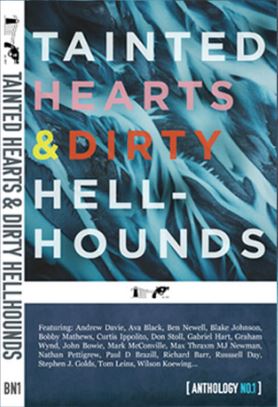 What is your next project? My next story to come out is called “Lola”, and it will be featured in Deep South Magazine. “Lola” should be published there within the month, and it’s my first non-fiction story, so I’m very excited about it. Lola was the name of one of my rabbits that passed away in June of 2020, and the reality of that event was extremely difficult for me to accept. Writing about her was also hard, but the end result is a story that Deep South editor Erin Z. Bass was kind enough to call “a beautiful story” and she expressed that she’s excited about it as well. Beyond that, it’s back to crime fiction and I have a football crime story called “Manny” appearing in Hoosier Noir: Three, and a story called "Justice for Leandro” that will be featured in the Tainted Hearts & Dirty Hellhounds anthology from Bristol Noir. The Hoosier Noir: Three and the Bristol Noir anthologies should be coming out sometime in Q1 of 2021.
1 Comment
Once again, we have several contestants in this annual poll. This year, however, two of our books are competing in the same category: Anthologies. Strangely Funny VII, the latest in our funny horror series, is vying against Mystery with a Splash of Bourbon, a collection of mystery stories and articles celebrating Kentucky's signature liquor.
We also have books competing in other categories. Please support them! We also have authors competing against authors in the Short Story category, and you might find familiar names cropping up elsewhere as nominations are still being made. Thank you for any support!
When did you begin writing your own stories? What inspired you? I've been writing since I was little. I'm disabled, so my body didn't always work well for me to do other hobbies. Writing just kind of ... was the only thing I could do. Tell us about Love & Bubbles! How did this anthology come about? I don't know exactly how it came about, but I can tell you how I got involved. Jaylee James was the first editor to ever publish my work, and we became friends. Around the time he was working on Love & Bubbles, I got the idea to work on my own anthology and I asked him for advice. He took me on as an assistant. How did editing an anthology change your process of writing? We got so many good stories that were the classic "mermaid meets human, falls in love" story. The ones that were different instantly got our attention. So no matter how good the story is, I've learned that it's always a good idea to go for the weird, the 'out there.' What is your current project, and can you share some information about it with us? I've got stories in a couple anthologies coming out soon, but I'm not sure how much information I can share right now. So let me promote my other anthology I co-edited with Brian McNett: Space Opera Libretti. Space Opera ... emphasis on the opera. 20 stories, poems, and even an actual opera script fill the pages of this comedic and musical science fiction anthology. Time traveling cats! A song that never ends! Invisible bears! All that and more from first-time authors and award-winning veterans. 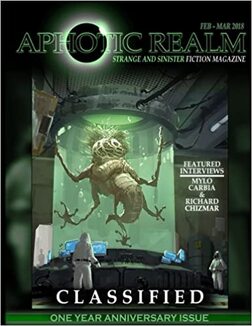 Kelly Gould lives and writes in Oregon with his wife and children. He is an avid fan of the Chicago Bears and Van Halen (w/ Sammy Hagar). When he isn’t writing he is usually enjoying good whiskey and bad horror movies. His work has been included in anthologies from Lycan Valley Press, A Murder of Storytellers, Deadman’s Tome, Lycopolis Press, Aphotic Realm, and Weirdbook. His story, "Hopelessly Devoted," was a part of the anthology, Stories of the Dead: A Tribute to George Romero. How did you choose the genre you wanted to write in (if it was a deliberate decision)? I don’t think I ever made a conscious decision about genre. I write what I’d like to read. I’ve always been drawn to horror with a tinge of weird (or weird with a tinge of horror). Twilight Zone, Amazing Stories, and Tales from the Darkside shaped my childhood as much as Friday the 13th, Nightmare on Elm Street, and Creepshow. Who is your favorite author, and what really strikes you about their work? No surprise with this answer. Stephen King. The guy made me want to write. He’s best known for horror, but his work is truly genre-spanning. His mammoth novels get most of the attention, but I prefer his short stories/novellas. The Long Walk and The Mist are must reads. Tell us how you came up with the idea for "Platinum VIP". Have you ever been on a tour like this, minus the time travel? No, I can’t say I’ve ever been on a tour like the one in this story. One of my favorite movies, Stand by Me, was filmed near where I live and I’ve toured some of those locations. I’ve done a few meet and greets at conventions and my wife has staked out a Wahlburgers to meet Donnie Wahlberg (she got a hug and a selfie). The initial idea for "Platinum VIP" came when I read about Anna Kendrick starting out her career on Broadway as a 12-13 year old. That got me thinking. Nowadays there are all sorts of VIP experiences available to those with the means to purchase them. Imagine being able to interact with your favorite actor/athlete/politician/author before they became a household name. Watch Michael Jordan play basketball in high school. Buy women’s shoes from George Clooney. Bump into a teenage Elvis Presley and have a peanut butter and banana sandwich. Time travel doesn’t have to be such a serious proposition. A prequel to "Platinum VIP" (or is it a sequel? With time travel it’s hard to tell.) was published in the magazine, Aphotic Realm #3: Classified. What is your current project, and can you share some information about it with us? Out later this year, I have a story included in On Time, an anthology from Transmundane Press. Recently, I finished the first draft of my first novel (there’s a sentence I never thought I’d write). Editing is now the bane of my existence. In your bio, you say that you watch a lot of bad horror movies. What is your favorite bad horror film, so bad it's great? (Mine is Vampire Hookers.) I probably should stop calling them “bad” horror movies. B movies? I don’t like calling them guilty pleasures. Maybe 'Movies-that-I-appreciate-but-others-might-not' would be more accurate. There are tons of these movies I enjoy but I know my wife would not. Return of the Living Dead, Chopping Mall, and Maximum Overdrive are the ones that immediately come to mind. I saw Maximum Overdrive at a drive-in when I was a kid. Freddy and Jason never really scared me (although I still love those movies) but the opening scene of Overdrive on the drawbridge haunted me. Plotter or pantser? More pantser than plotter. I usually have a an ending figured out before I start, but getting there from Chapter 1 can be interesting.
When did you know you wanted to become a writer? About ten years ago, I wrote my first fiction story to entertain my young sons. It turned into quite a project. We ended up self-publishing it, and I discovered my love of writing for children. I've authored 11 traditionally published children's book titles. In the last year or so, I've started writing short stories for adult anthologies. I've enjoyed being able to address more mature themes and leverage higher vocabulary. Who is your favorite author, and what really strikes you about their work? That is a Sophie's Choice. There are so many great authors from which to choose. Among my favorites are J.R.R. Tolkien, Kevin Hearne, Maggie Stiefvater, Isaac Asimov, and Lloyd Alexander. Your story is funniest for people familiar with the Beatles. Are you a huge Beatles fan, or did you come up with the idea and then research the details? Tell us about your fandom and/or creation of "Four Fab Physicists." I admire the Beatles' music, but I'm not a mega-fan. I simply got the idea to write about a group of people who were famous for one thing, but had a hitherto unknown secondary skill. Not unlike Abraham Lincoln: Vampire Hunter. I also find incongruous mashups amusing, so this story is The Beatles meet Big Bang Theory, with a touch of This is Spinal Tap. What is your current project, and can you share some information about it with us? I have several adult horror, fantasy, and sci-fi short stories on submission (including my first steampunk and western horror stories). For kids, I have a sci-fi middle grade novel and short story on submission. To be published later this year and next, I have a contemporary magical realism early chapter book (The Magic Spatula), a narrative nonfiction picture book (I Am Smoke), three short stories for Highlights for Children and one for Ladybug (Cricket Media). My website is www.henryherz.com What do you like to do when you're not writing? Sorry, I don't understand the question. :) Spicer’s wit and cleverness shine and leave you wondering what he will serve up next for your reading pleasure.
About the Author
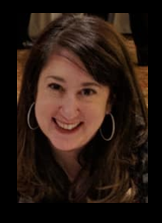 Cheryl Zaidan is a full-time marketer, part-time writer and hardcore dreamer who enjoys creating fictional characters just so she can do bad things to them. When did you know you wanted to become a writer? I'm a lover of words so I suppose it was inevitable. I've always enjoyed writing both fiction and non-fiction and have done quite a bit of freelance writing in the past. I have to admit, I used to love writing short stories, but for awhile my creativity was stalled. It wasn't until I decided to stop censoring my imagination and embrace the weird, that the words started to flow again. The main characters in your story are male. What's the most difficult thing about writing characters from the opposite sex? Oh boy, I love writing characters that are nothing like myself regardless of sex. It's so much fun to get into somebody else's head, embrace their mannerisms, their dialect etc. even if they ARE fictional. I also like a lot of diversity so whether they're male or female, they come from different places and all walks of life. Poor hapless Rufus who I wrote for this story was a blast to create, although the spellchecker didn't like his language sometimes. I still can't convince Microsoft Word that "ain't" is what I meant to write. What is the most difficult part of your creative process? Sitting down and actually doing it. I just started writing and submitting in earnest late last year and it's been fun, but it took longer than I'd like to admit to get a little serious about it. Also I only write when I feel like it and don't force myself when I don't. That goes against all the rules that tell you that writers must write everyday, but hey, my muse only works part-time. What is your current project and can you share a little of it with us? I'm working on a writing site/blog at www.CherylZWrites.com and I'm also planning on editing one of the many, many novels I've written during National Novel Writing Month. I'm a big proponent of that program. What do you like to do when you're not writing? Well, working. But also reading, yoga, watching horror movies, listening to music and bugging friends and family. What's next for Cheryl? Cheryl's next story is called "Ugly Eyes" and will be featured in the ezine "The Asylum Diaries – Autopsy."
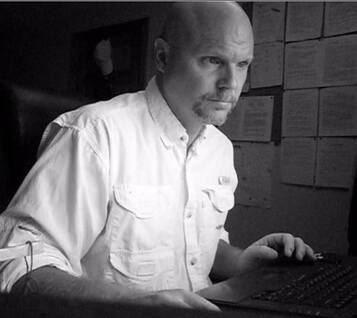 Rob Smales is the author of Echoes of Darkness, which garnered both a five-star Cemetery Dance Online review and a 2016 Pushcart nomination. With over two dozen short stories published, his story “Photo Finish” was also nominated for a Pushcart Prize and won the Preditors & Editors’ Readers Choice Award for Best Horror Short Story of 2012. His story “A Night at the Show” received honorable mention on Ellen Datlow’s list of the Best Horror of 2014, while “Death of the Boy” and “In Full Measure” made the same honorable mentions list for 2016. Most recently, he edited the dark humor anthology A Sharp Stick in the Eye (and other funny stories) for Books & Boos Press, and released the coming of age horror novella Friends in High Places with Bloodshot Books. When did you first begin writing stories? August 9, 2010. I know, because I still have the file. I wrote a single scene, just to see what it would be like. I eventually expanded that scene into a short story, a—if you can believe this—romantic comedy that no one will ever, ever see. But it did all start with a scene about a young man picking up a girl for a date, written just for myself, back in August of 2010. On your website, you state that you write character-driven dark fiction. Would you elaborate on that? Sure! I’m a pantser—or discovery writer if you’re feeling fancy—which basically means that when I sit down to write, almost nothing about the story’s set in stone. I have a starting point and a proposed ending, and I just start writing my way there. Along the way I meet my characters, become acquainted, and see them in action. Just like you get to know the people around you by observing what they say and do, I do the same with the people in my head. And just like it strikes you as odd if someone you know does something out of character—say your mom started snarfing down a Skippy on whole wheat sandwich, when you know she has a peanut allergy—it strikes me as odd if these new friends of mine start doing things that are out of character for them. If it strikes me as odd, it’ll strike my readers as odd, and that will give that temporary suspension of disbelief thing we fiction writers rely so heavily on a serious poke, and pull the readers out of the story. Take the mother in the above example: if someone told you she was eating that peanut butter sandwich, and you knew about her nut allergy, your first reaction is to say “I don’t believe it!” That’s the kind of reaction I’m trying to avoid. If it were her brother, however—and we all know he has a serious love for Skippy—it wouldn’t raise any eyebrows. What if someone had a gun to the brother’s head and told her he’d die if she didn’t eat that sandwich. Would she eat it then? Of course! That’s the way I write my stories. Along the way to the intended destination, everything that happens has to fit the characters involved. If none of the characters would do a thing that needs to happen in my story, I either have to change the circumstances so they would (the gun to his head above), or change the story itself to make it fit the characters. The story becomes driven by the in-character actions of those characters. Sometimes that means the ending can even change, a new one rising up propelled by the characters themselves. How did you get the idea for "Do I Fat?" I’m a mailman by day, and I have a lot of customers. I used to have a woman who received registered packages with stunning regularity, and whenever she did would give me a packet of cookies while signing the receipt. Eventually I told the cookie lady, “Please, you don’t have to do that. I’m going to get fat.” The cookie lady is an elderly emigrant from the former Soviet Union, and though her English is about a billion times better than my Serbo-Croatian, she looked up at me and said, in an accent worthy of Mr. Chekov, the original Star Trek helmsman, “But you walk all day. You walk, you sweat. You sweat, you lose weight. I work in bakery. Hard work. I sweat.” She raised spindly arms to showcase her spindlier body. “Do I fat?” I had to admit that she did not. But her little speech stuck with me—I love accents, and might easily listen to her tell stories for hours—and I’d recently read something that had reminded me of Baba Yaga, the witch of Russian folklore who appears in so many tales, though is best known around these parts as the child-munching cannibal in Hansel and Gretel. I started wondering what it would be like if Baba Yaga had survived to the modern age. Would she fit in? Would she still be up to her old kid-eating tricks? Would she, in fact, fat? Now we know. As a side note, a couple of months after having that little conversation, shortly after I’d written my first draft of “Do I Fat?”, the cookie lady took that day’s receipt into her apartment to sign and was gone for longer than usual. When she returned, she handed me the signed slip . . . and an apple. Apparently, I had been right all along, and I do fat. Do you have an essential book on the craft of writing that you would recommend to others? The only book on writing I’ve read is On Writing, by Stephen King. I read it because I love King’s work, and his style, and also because it was entertaining as hell, but I wouldn’t call it essential. Much of what he actually says about writing is more general than specific, more guidelines than rules—which might be a result of his basic belief that writing can be learned, but it can’t be taught. People come at this writing thing from so many different angles, no one book will work for everyone, and he’s pretty upfront about thinking that. I believe that as well, so to my way of thinking no book is essential. If you don’t like King or his style of storytelling, then it’s definitely not the book for you. If you do like King, then read it for fun, but don’t go into it assuming it will make you a better writer—though it may help. So, essential? No. Recommend? Sure, if you like him, pick up a copy of On Writing, because:
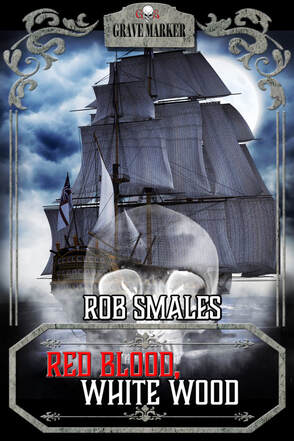 Who is your favorite author and what really strikes you about their work? I’ve mentioned loving King's work, but my favorite book of all time is A Prayer for Owen Meany, by John Irving, and I’ll tell you why. It’s the story of someone’s life—Owen Meany’s, of course—and is written that way, with lots of scenes and little stories that don’t really seem to have a goal, or even anything in common other than their having to do with the title character. That’s how we live: some stuff happened yesterday that has nothing to do with some of the stuff that’s happening today, and all of that really has nothing to do with some of the things that will happen tomorrow, other than that they’re part of our ongoing lives. Irving managed to write all these disparate parts in such a way that they’re all interesting, all fun, and you never sit there wondering Jesus Christ, where the hell’s he going with all this? Then you get to the end of the book, and all those loose threads he’s left lying all through the story, he starts pulling them tighter. He tugs on this scene, then that one, and your perception of them begins to shift—and then, like one of those optical illusion puzzles where if you look at a pattern just right it resolves into a picture, and instead of seeing just a random bunch of colored dots you’re suddenly looking at the face of Jesus, or Hendrix, or John Lennon, every scene that’s come before that used to seem unconnected sort of lines up and falls into place in your mind, and you see that everything--everything—that’s come before was actually all aimed toward this exact point in Owen’s story. You draw in a deep breath of wonder, and it comes out through rounded lips in a sigh that sounds suspiciously like “whoa . . .” I want to do that. Someday, I want to do that. Who is your greatest cheerleader? I have a few cheerleaders, each great in their own way, and it would be insulting and unfair to choose one above the rest. How’s that for a political answer? What's next for you? The next thing I have coming out is a small standalone not-quite-a-novella, the next installment in Grinning Skull Press's Grave Marker series, Red Blood, White Wood. This little pirate story is a tale of murder, mist, and magic, and will be available in the Kindle store on June 27 for just 99 cents.
You had us hooked with the notion of a 'Skunknado'. but the heroes of the tale really made the story. What inspired you to create them? When I was brainstorming for Strangely Funny VI, a coworker saw a skunk in the parking lot and thought it was a cat. When we got closer, we realized it wasn’t a cat, and we all laughed. I decided then that there is just something innately funny about skunks, because when they attack, you aren’t really injured, you just stink (which is somehow worse than being bitten), and that there needed to be at least one skunk in my next Strangely Funny submission. I’d watched a few disaster movies over the preceding month or so, including classics like Twister, and I liked the idea of writing a parody of disaster films. But with skunks. I’d never seen any of the Sharknado films, but I felt that they were now the industry standard for disaster movie parodies. I watched one, it was bad. Really bad. Really, really, gloriously bad. I wanted to write a parody of a parody, so it had to ratchet up the insanity exponentially. If Sharknado stretched the suspension of disbelief to the breaking point, my story would have to tear straight through it. Disaster movies have their own tropes, and their own highly specialized characters who are uniquely capable of coping with the extreme situations they find themselves in. For instance, in Twister you have Bill Paxton and Helen Hunt’s characters, seasoned storm chasers who work at the fringe of acceptable science. At least one character in a disaster movie has to be the lone-wolf outsider who correctly predicted the disaster was coming, but was ignored, or worse, mocked. Think of Jeff Goldblum’s character in Jurassic Park (which is both a disaster movie and a horror movie!) when he says “ ...your scientists were so preoccupied with whether or not they could that they didn't stop to think if they should” (which I quote in "Skunknado"). Then, of course, you need a group of otherwise capable characters to be put in a situation from which they need to be saved. One of the defining characteristics of a disaster film is that somebody, usually several somebodies, must be saved by the hero. It is this heroic salvation that drives the drama in the story. So, I needed a disaster. I took the insanity of Sharknado, and made it yet more insane by replacing the sharks with skunks. But that wasn’t bad enough, so I made the tornado the biggest one ever, sort of like the final tornado in Twister. Now, I needed someone to put into danger. I settled on a team of storm-chasing scientists who had a new laser-based technology that were studying tornadoes. I looked at the tropes and settled on the elderly academic who lets his mind wander, a uniquely rebellious graduate student who is fiercely intelligent, but has poor people skills, and an overweight guy who has memory lapses that require the other characters to explain what’s going on at inopportune moments. I threw them in a van, hurled a Skunknado at them and voila! You have a recipe for disaster.  Now, for the hero. Think of disaster movie heroes and you come up with a stereotype pretty quickly. Dwayne “The Rock” Johnson in San Andreas (or Rampage, Skyscraper, etc.), Bruce Willis in Armageddon, Thomas Jane in The Mist, and any film starring Arnold Schwarzenegger, all hyper-masculine and all hyper-capable heroes that few olympians could hope to match. I briefly considered making the hero of the story a female, but since "Skunknado" is a parody of the genre, I felt I needed a man to really sell the complete ridiculousness of the story. Enter Jack Dammett. Jack is a ruggedly handsome man, with four PhDs and a nice car. He’s the kind of guy that has theme music playing when he walks down the street, and has serious opinions about meteorology and the quality of his tan. I conceived of Jack as a kind of genetic hybrid of every action movie hero, combined with the brains of Steve Jobs and the laid back attitude of Matthew McConaughey. Everything he does is essentially effortless, yet undeniably cool. He got his name because I wanted to include the line, “Dammit, Dammett!” I really like the character, and I think Jack Dammett will return. Can you tell us a little about your writing process? I like to write in the evenings, or in the very early morning (a couple hours before the sun rises). I brew a pot of tea, usually a Darjeeling blend, and fire up some music. It needs to reflect the genre I’m writing. For instance, when I wrote my detective novel, Bigshots & Bulletholes, which is set in the 1940s, I listened to musicians like The Andrews Sisters and Bing Crosby, while some of my horror stories had Marilyn Manson or Skindred as the soundtrack. Honestly though, the playlist I use most is Bach’s Inventions, which I can listen to while writing almost anything. My stories are plot-driven, so at the start I decide the broad themes I want to explore, and then decide on a few must-have elements that must happen in the story, then I start to write. I don’t do any detailed plotting in advance of starting the story (which I’m told makes me a pantser), I prefer to let the story progress organically. Some writers consider this approach suboptimal because the plot can meander a bit if you’re not careful, but from what I’ve seen of the real world, meandering is an unavoidable consequence of living. I find great satisfaction when a plot unfolds in a story without my needing to bludgeon it to fit within a preconceived plot framework. It doesn’t always happen, but when it does, it’s narrative magic. If you could ask your readers one question, what would it be? What specific type of novel is an automatic “must buy” for you? Is there a new author or book out there that you think we should be reading and why? I just discovered Jo Nesbø not long ago, and I’m working my way through his backlist now. He’s not necessarily a “new” writer, but his work is new to me. Last year I did the same thing with Henning Mankell’s work. The specific genre that both authors fall into is Scandinavian noir, which is again, not new, but new to me. Give it a try, you won’t be disappointed. What is your current project? I’m writing another 1940s detective novel, a sequel to Bigshots & Bulletholes, featuring my female private eye, Kissy Lisbon. My progress has been slow for a couple of months because I’m still trying to adapt to my new work schedule at my day job (I work for Uncle Sam, but not in a bad way). I’ve spent the last fifteen years happily working third shift, but now I’m working seconds, and I’m having trouble sleeping during the night. Insomnia is not conducive to writing. I just wrote a script for the PLB Comics Halloween Special due out later this year. It’s an anthology title, my story will be one of several. My brother is doing the sequential art for my part of the book. I also have several short stories in various states of completeness, ranging from barebones ideas, to final polishing.
|
Welcome!
Mystery and Horror, LLC, is an indie press interested in what the name suggests. Contact us at: [email protected]
Archives
October 2023
Categories
All
|
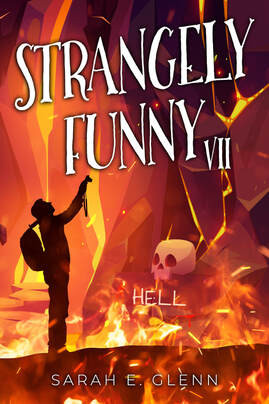
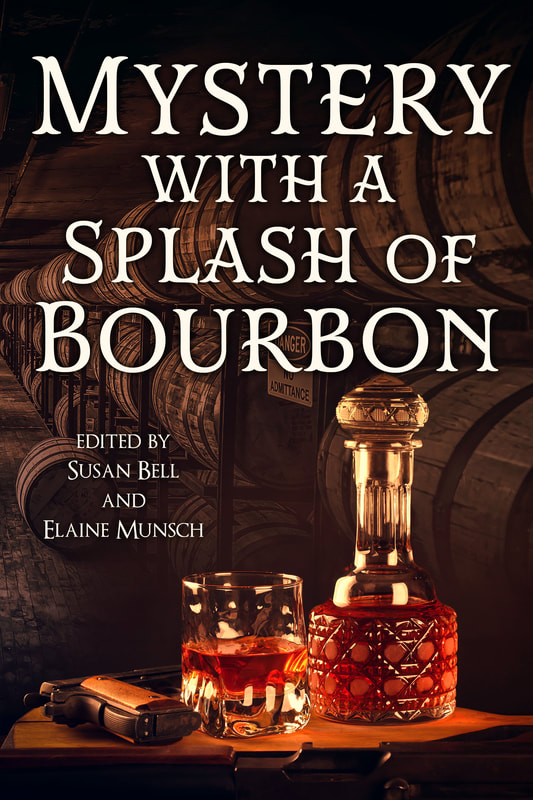
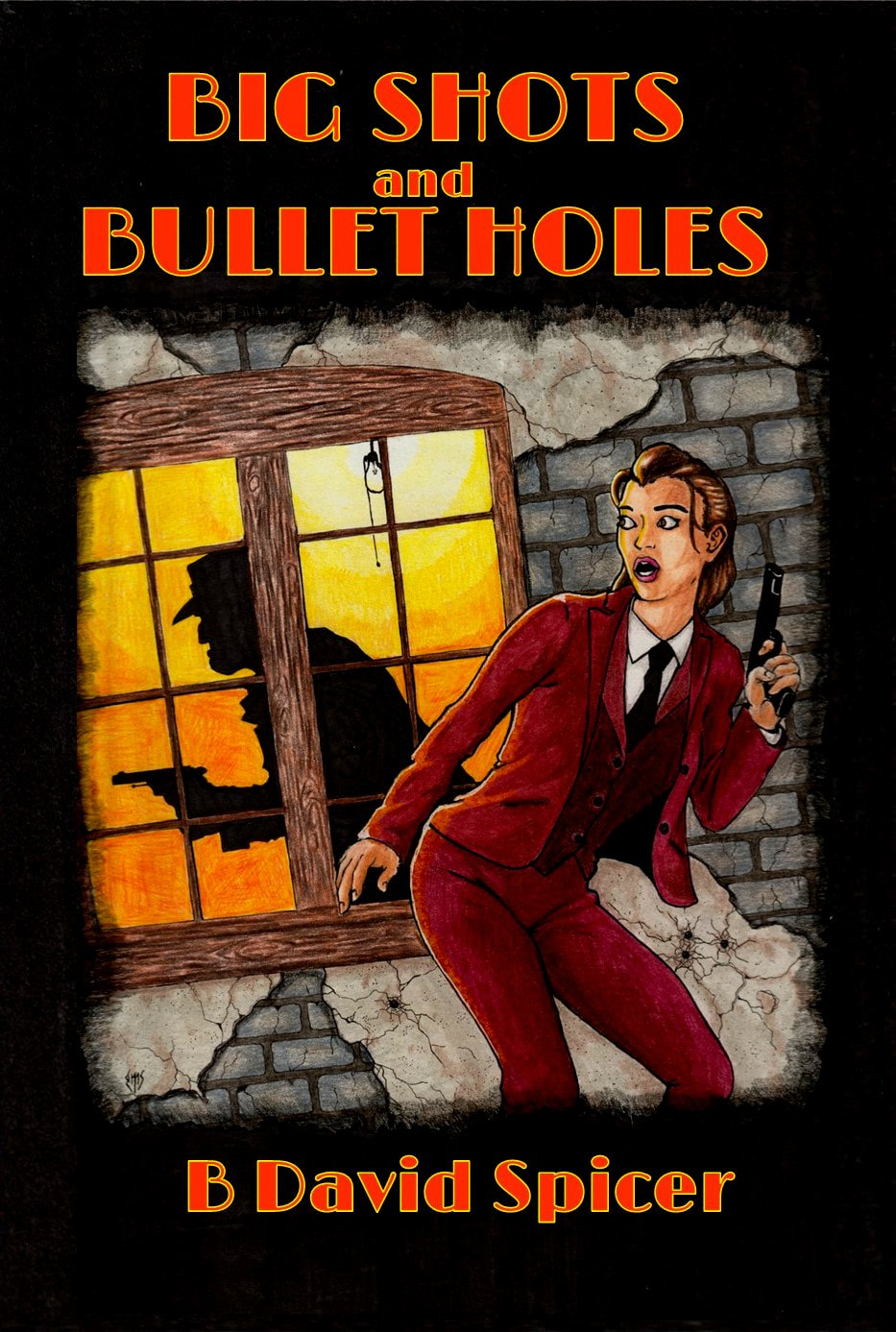
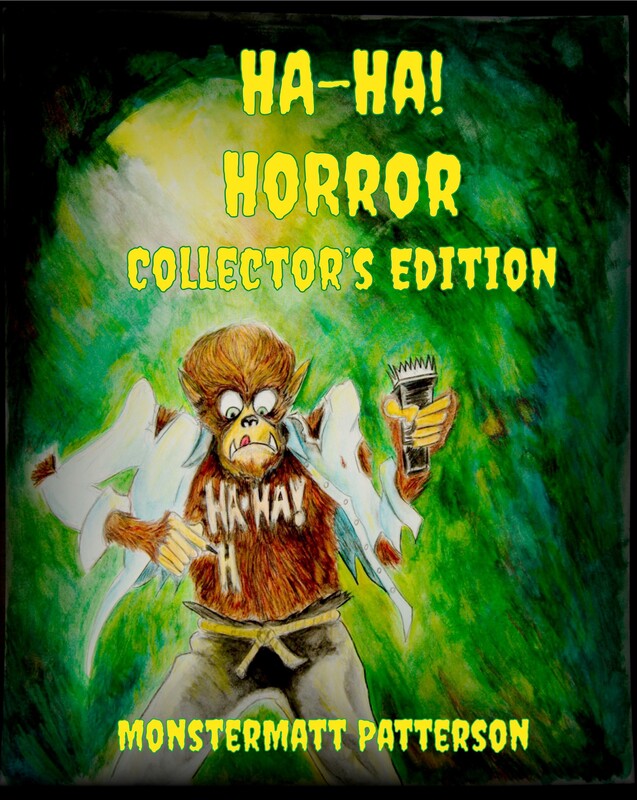
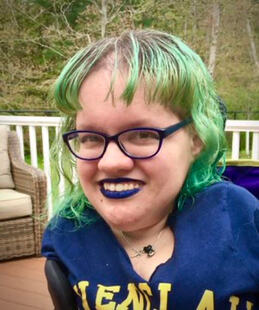
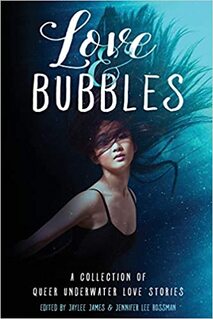

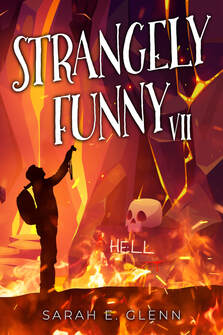
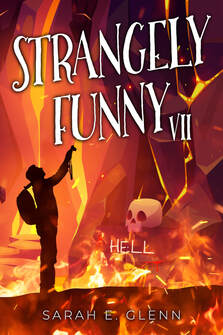
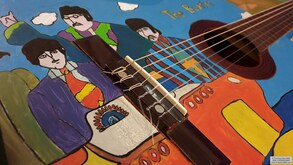
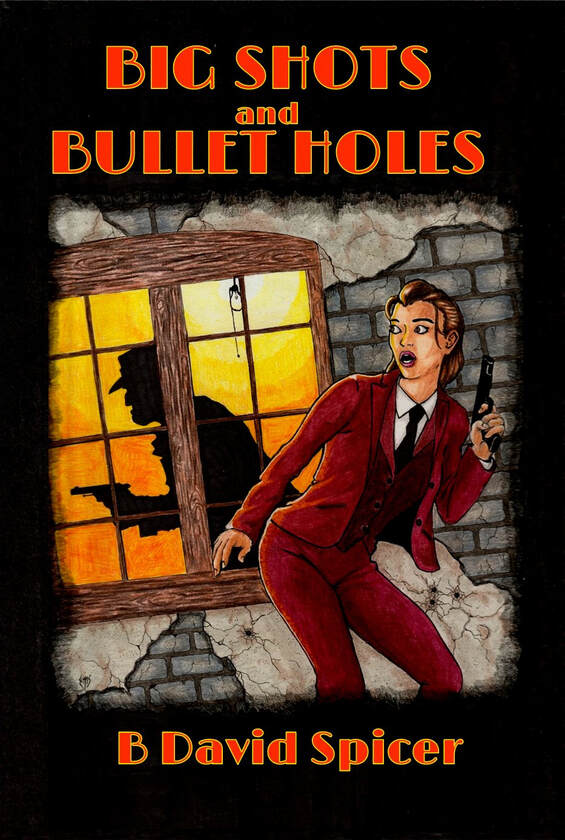
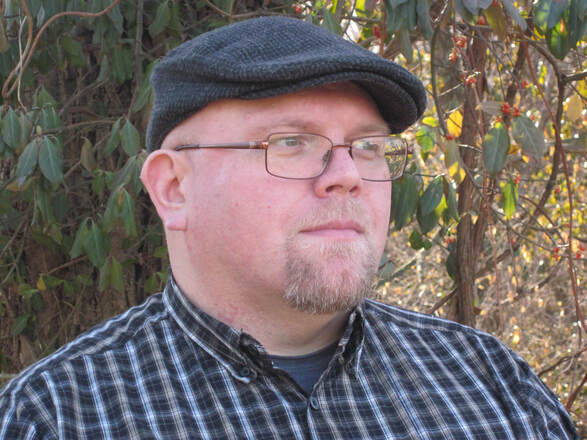
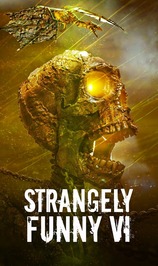
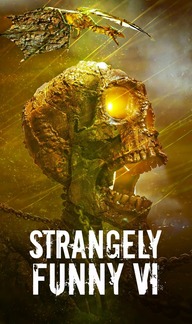
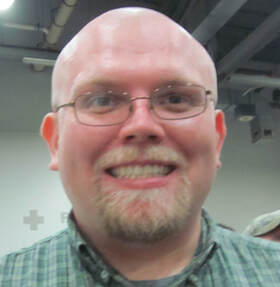
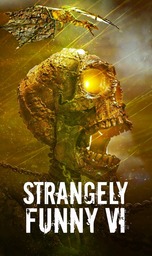
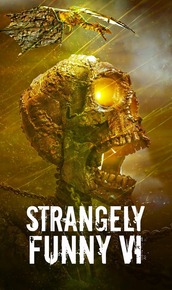
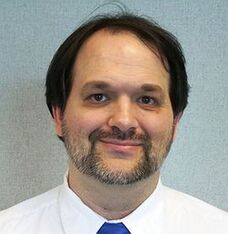
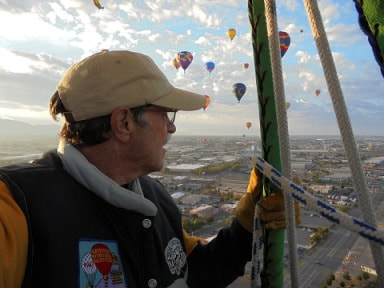
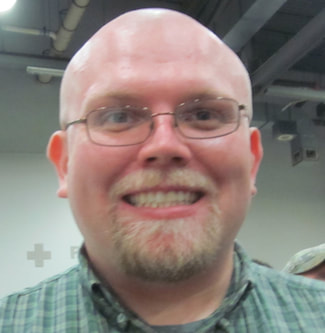
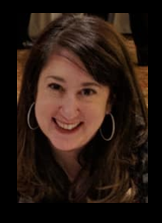
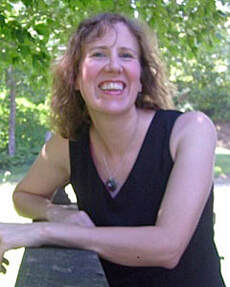
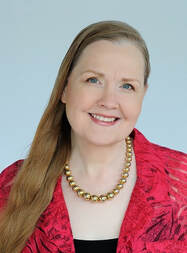
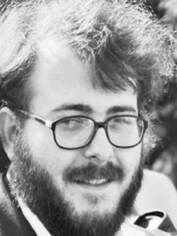

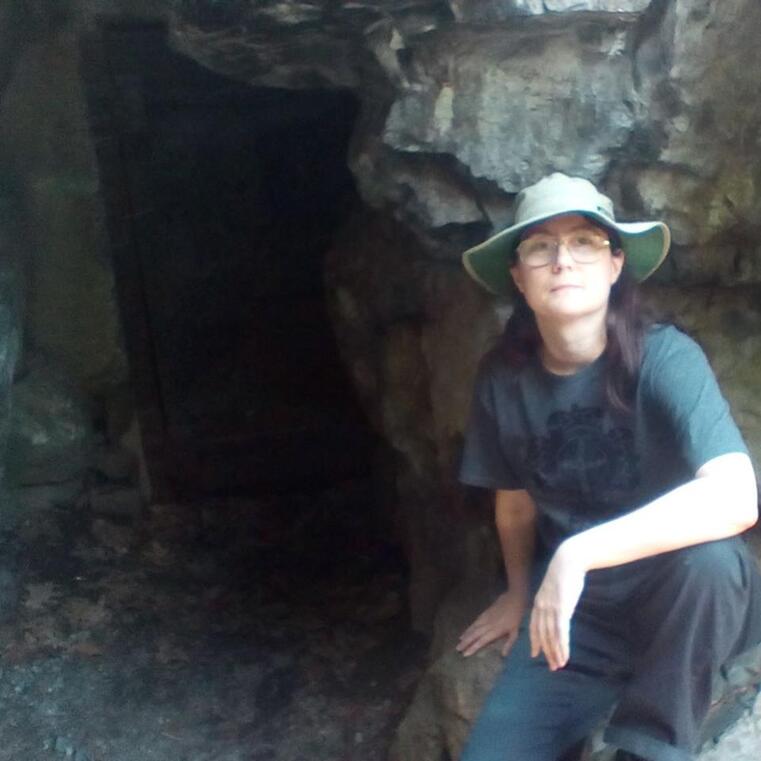
 RSS Feed
RSS Feed